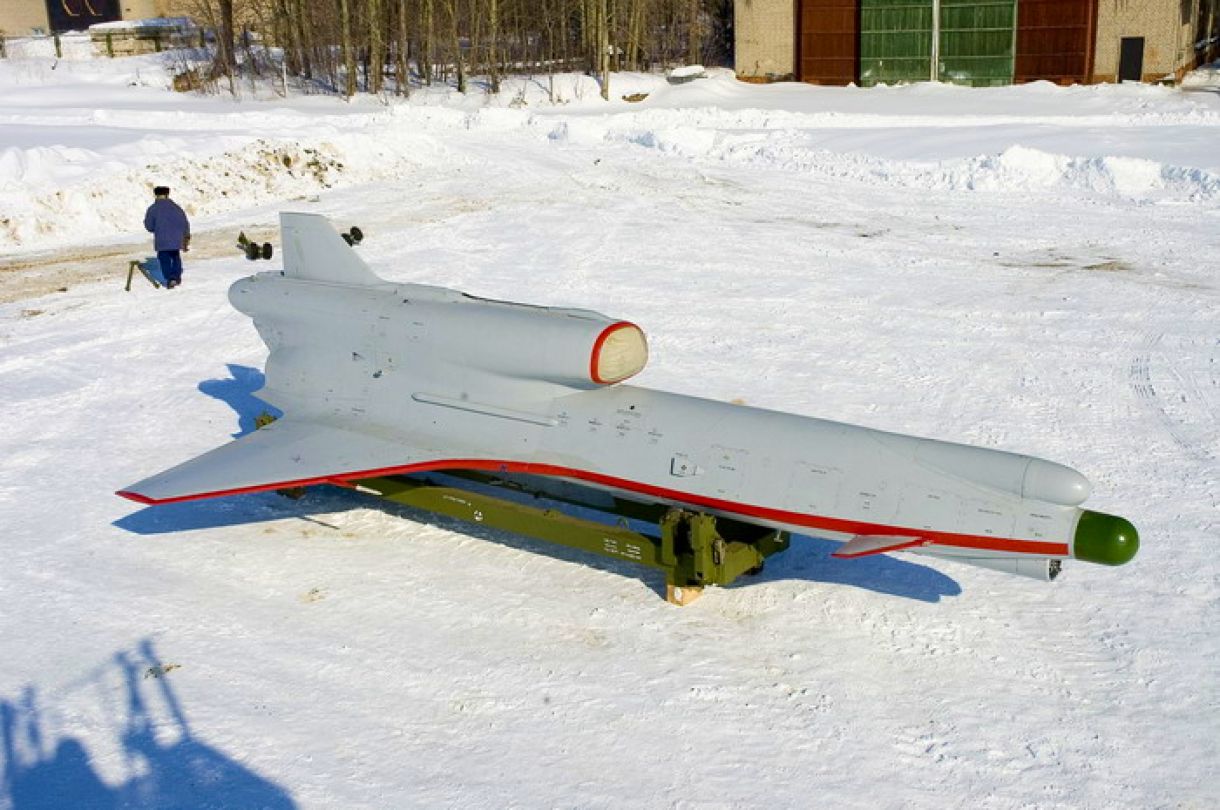Almost a year into Russia’s invasion of Ukraine, its troops have been unsuccessful in delivering a decisive blow to the Armed Forces of Ukraine (AFU).
Security analysts have repeatedly emphasized that the inability of the Russian Aerospace Forces (VKS) to achieve air superiority over Ukrainian skies is the key reason why the Russian military has been unsuccessful in defeating the AFU.
More Firepower Against China! US Reactivates A New ‘Forward Base’ In Guam As Japan-Funded Project Aims To Check PLA
It is expected to become tougher for the Russians to take on the AFU with the advent of more advanced western air defense systems in Kyiv.
This is where the Unmanned Aerial Vehicles of the Soviet era come in. In a recent article published in local media, Russian expert Sergey Marzhetsky makes a case for bringing some Soviet-era drones, especially the Tu-300, back to life to prevent the hurdles posed by Ukrainian Air defenses.
The expert advocates for using these UAVs as kamikaze drones.
Currently, the fighting is concentrated in the eastern and southern parts of Ukraine, with areas near the Dnieper witnessing intense combat.
A Russian official recently warned that Ukrainian troops could exploit a sharp drop in the Dnieper River’s water levels in the coming days to cross the current front line at Zaporizhzhia and “start operations elsewhere” on this southern line of conflict.
The bridges over this river used by Ukraine to resupply its troops on the left bank have not yet been destroyed. The region is well protected by AD systems, making it a death trap for Russian fighter jets.
According to Russian military expert Sergey Marzhetsky, they can only be destroyed by using tactical nuclear bombs, which would destroy the civilian populations, or by spending considerable money on Kalibr and other cruise missiles needed to penetrate the enemy’s air defense systems.
Moreover, this would have to be done repeatedly since the Ukrainians will strive to repair the bridges immediately.

Another route could be dropping a large air bomb of the FAB-500 on the bridge crossing, but it is believed that the Russian aircraft won’t be able to penetrate the AD in the region.
Further, the VKS does not have nearly enough aircraft to send them on suicide missions. Military pilots must undergo extensive training if a mission of that stature has to be undertaken, even though it is unlikely.
The idea of bringing back the Tu-300 itself emanates from a similar move undertaken by the Ukrainian military.
In early December 2022, the AFU conducted a long-range strike on two Russian Air Force Bases using a soviet-era UAV. While the AFU has not accepted responsibility for the attacks, the Russian MoD specified that the UAV used was a modified Soviet-era drone identified by experts as a Tu-141 Strinzh.
It has been extensively reported that the Tu-141 drones were essentially converted into real cruise missiles, equipping them with modern radio-electronic equipment for satellite control and a powerful explosive charge.
These drones were produced in Kharkiv during Soviet rule, and according to some sources, more than a hundred survived in Ukraine.
The Russian military has deployed Shahed-136 Kamikaze drones and locally-developed Lancet loitering munitions against Ukraine in large numbers. However, the explosive carried by these suicide drones does not match the kind of payload that the archaic Soviet-era UAVs can carry if upgraded and converted to perform suicide missions.
A Case For Tu-300 “Korshun-U” Drones
A whole family of reconnaissance UAVs was created in the Tupolev Design Bureau, which includes the “Ukrainian” Tu-141 “Strizh,” Tu-143 “Reis,” and Tu-243 “Reis-D.”
One more such drone, according to Sergey Marzhetsky, that could become an asset for Russian operations is the Tu-300 Korshun-U, which also has modifications for conducting electronic intelligence and relaying radio signals.
The forward portion of the fuselage is equipped with mechanical communications, an electronic computer complex, and auxiliary and surveillance equipment.
The main load, missile-bomb armament, and radio-electronic equipment are fitted on the external points of the fuselage suspension and in the fuselage compartment. The UAV can carry up to one ton of specialized load in addition to its weight of about four tons.
It has internal weapon bays and a single centerline pylon for external munition. It was created as a strike UAV or “uninhabited air combat vehicle (UCAS).” It has nose fairings and an antenna dome for contemporary sensors and electronic equipment. It has a bigger inlet, which could indicate turbofan propulsion.
The Tu-300 can be equipped with high-explosive and cumulative-fragmentation bombs as percussive weapons.
Sergey Marzhetsky argues that if the FAB-500 aerial bomb, which was recently equipped with a planning and correction module, could be placed on the suspension at the Tu-300 Korshun, it would be possible to send attack drones capable of penetrating a thick reinforced concrete slab, dropping them without entering the enemy’s air defense zone.
This would cause significant damage to the enemy’s supply lines.
He further argues that the Russian troops can get a perfect “drone fighter” by fitting the Tu-300 Korshun with modern control systems, homing air-to-air missiles, and a rapid-fire machine gun.
Marzhetsky sounded urgent in bringing back the drone since the Ukrainian military has been using the Tu-141 to strike targets deep inside the Russian territory.
- Contact the author at sakshi.tiwari9555 (at) gmail.com
- Follow EurAsian Times on Google News